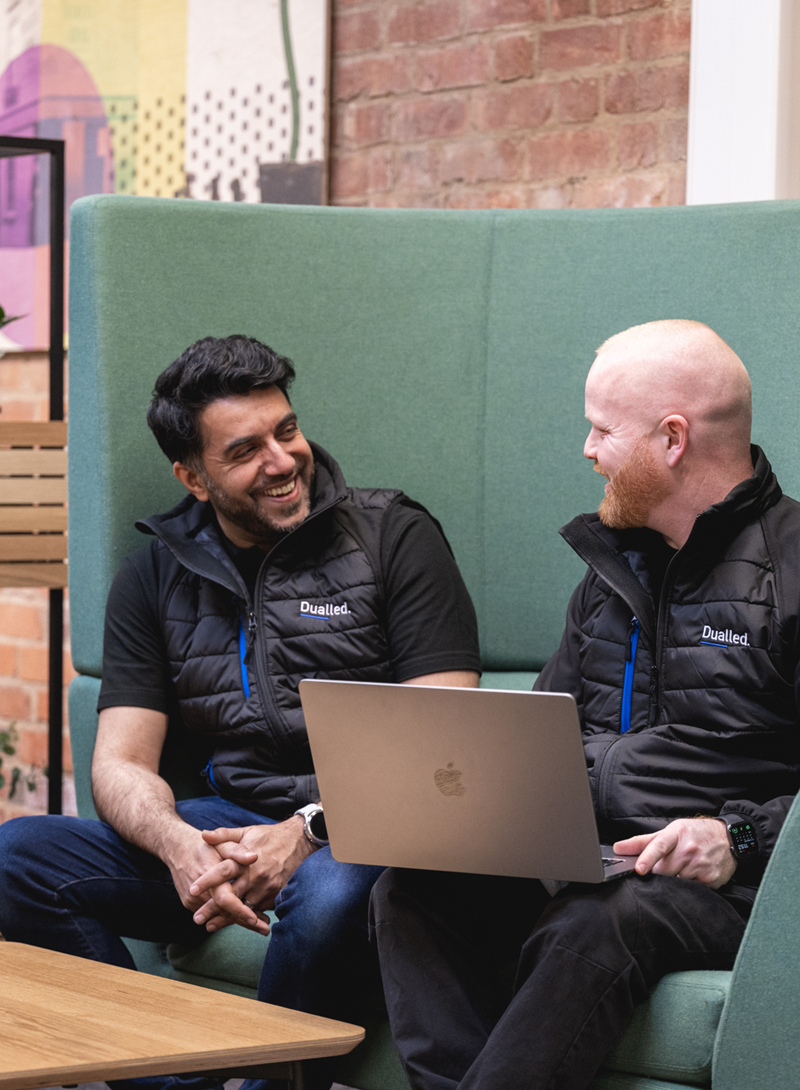Culture and Leadership
Agile Management
Organisations that embrace Agile Management practices are better equipped to respond quickly to market shifts, customer needs, and emerging opportunities.
Agile Management enables businesses to foster innovation, enhance collaboration, and deliver value to customers more efficiently and effectively. By embracing Agile principles and methodologies, organisations can adapt to change, accelerate decision-making, and drive continuous improvement.
Our Agile Management assessment service is designed to help businesses evaluate their readiness for Agile transformation and identify opportunities for improvement. Through a comprehensive analysis, we assess the organisation’s current Agile maturity level, practices, and processes, and provide actionable recommendations for enhancing Agile Management capabilities. With our expertise, we can help guide businesses in adopting Agile principles and practices to drive organisational agility and achieve business objectives.
Initial Consultation
We start by engaging in an initial consultation with key stakeholders to understand the organisation's strategic objectives, current challenges, and motivations for adopting Agile Management practices.
Agile Maturity Assessment
We conduct an Agile maturity assessment to evaluate the organisation's current level of Agile adoption and maturity across various dimensions, such as leadership commitment, team collaboration, process agility, and customer focus.
Stakeholder Interviews
We conduct interviews with executives, managers, Agile coaches, and team members to gather insights into their understanding of Agile principles, practices, and challenges. These interviews help identify areas of strength and areas for improvement.
Process and Practice Review
We review the organisation's existing processes, practices, and tools related to project management, product development, and team collaboration. This review helps assess the alignment of current practices with Agile principles and identify opportunities for improvement.
Team Workshops
We facilitate workshops with cross-functional teams to introduce Agile concepts, practices, and techniques. These workshops provide hands-on experience and foster a culture of collaboration, transparency, and continuous improvement among team members.
Agile Metrics and KPIs
We define key Agile metrics and key performance indicators (KPIs) to track the effectiveness of Agile practices and measure progress towards Agile transformation goals. These metrics may include cycle time, lead time, velocity, and customer satisfaction.
Gap Analysis
We conduct a gap analysis to identify discrepancies or gaps between the organisation's current Agile capabilities and desired Agile outcomes. This analysis helps prioritise areas for improvement and develop a roadmap for Agile transformation.
Training and Coaching
We provide training and coaching to executives, managers, and team members on Agile principles, methodologies, and best practices. This training equips individuals with the skills and knowledge needed to embrace Agile Management and drive organisational change.
Continuous Improvement Plan
Based on the assessment findings, we collaborate with stakeholders to develop a continuous improvement plan for Agile transformation. This plan outlines specific initiatives, timelines, responsibilities, and success criteria for advancing Agile maturity and effectiveness.
Implementation Support
We provide ongoing support and guidance throughout the Agile transformation journey, including coaching, mentoring, and facilitating Agile rituals. This support helps ensure successful adoption of Agile practices and sustained organisational agility.
Monitoring and Evaluation
We establish a framework for monitoring progress and evaluating the effectiveness of Agile transformation initiatives. Regular retrospectives, feedback loops, and performance reviews enable continuous learning and adaptation to maximise Agile Management benefits.
We start with an initial consultation and conduct a comprehensive Agile maturity assessment. Stakeholder interviews and process reviews help identify strengths and areas for improvement. We facilitate workshops and define Agile metrics to track progress. A gap analysis guides the development of a roadmap for Agile transformation.
The benefits of doing:
Enhanced Responsiveness: By evaluating Agile maturity and practices, organisations can better respond to market shifts and customer needs, fostering a culture of adaptability and innovation.
Improved Collaboration: Conducting stakeholder interviews and team workshops promotes collaboration and transparency, leading to better alignment and teamwork within the organisation.
Increased Efficiency: Identifying and addressing gaps in Agile capabilities and processes can streamline workflows and improve productivity, enabling teams to deliver value more efficiently.
Better Decision-Making: Defining Agile metrics and KPIs allows organisations to measure progress and make data-driven decisions, enhancing agility and facilitating continuous improvement.
Sustainable Agility: Through ongoing support and monitoring, organisations can sustain Agile practices and foster a culture of continuous learning and adaptation, ensuring long-term success in a rapidly changing environment.
The consequences of not:
Slow Adaptation: Without assessing Agile maturity and practices, organisations may struggle to adapt to changing market conditions and customer demands, leading to decreased competitiveness and missed opportunities.
Siloed Work: Lack of collaboration and transparency can result in siloed work environments, hindering communication and coordination among teams and departments.
Inefficiency: Failure to identify and address gaps in Agile capabilities and processes may lead to inefficiencies and bottlenecks, slowing down project delivery and increasing time to market.
Limited Insight: Without defining Agile metrics and KPIs, organisations may lack visibility into project progress and performance, making it difficult to identify areas for improvement and make informed decisions.
Stagnant Growth: Neglecting Agile transformation initiatives and ongoing support may result in stagnant growth and limited ability to innovate, putting organisations at risk of falling behind competitors.


